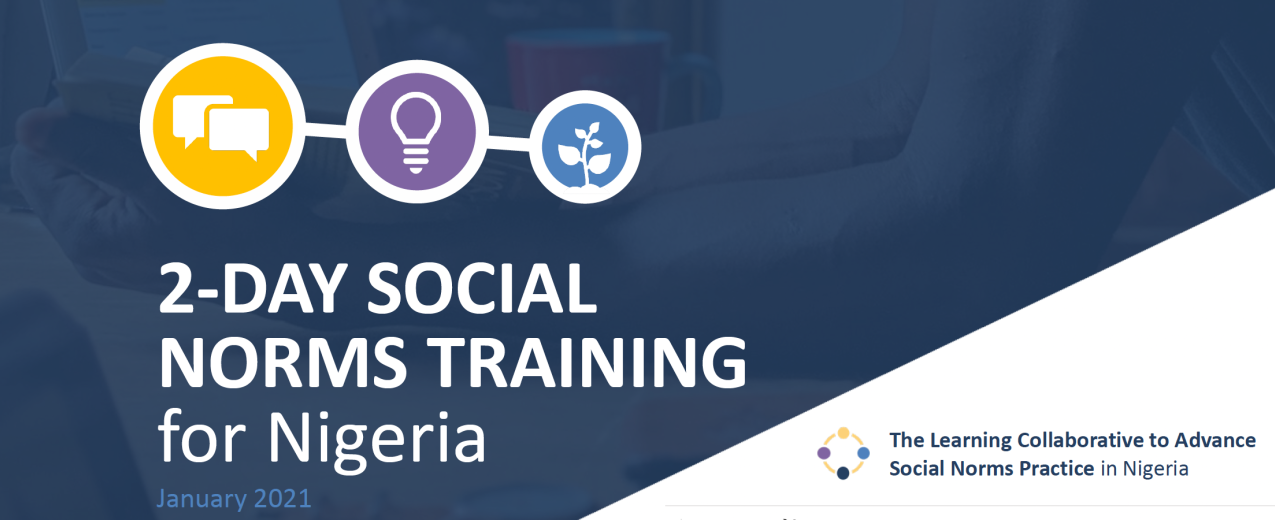
- Toolkit
- 1 January 2021
2-day social norms training curriculum for Nigeria
- Author: Nigeria Learning Collaborative
- Published by: Social Norms Learning Collaborative

Overview
This Facilitation Guide uses a multiplicity of instructional strategies, including participatory discussions, games, reflection exercises, group work and case studies. It aims to be theory-light, placing focus on practical implications of the social norms theory for participants’ intervention design.
How to use the Facilitation Guide
Structure:
Each day is broken into multiple sessions that should be facilitated sequentially. At the start of each day, you will see a pull-out box with notes for facilitators that explains the objectives of the day and how it connects to the rest of the course. This helps provide a higher-level perspective on the course flow. Next comes the ‘Overview’ which briefly explains the objective, materials needed, time, delivery method and key activities of each session. Games and energiser activities have been built into each day but other activities can be substituted.
Activity steps and description:
Each activity has been broken into steps so that the flow can easily be followed. Each step has a description with brief background information for the facilitator and details of any preparation that needs to be done before the session.
Development of the Facilitation Guide
The development of content was informed by a Needs Assessment conducted in 2019-2020 by the London School of Health and Tropical Medicine (LSHTM) and FHI 360 which sought to understand capacity, gaps and needs regarding social norms among organisations seeking to or already working on social norms. The Needs Assessment identified the importance of developing simple, practical content for use by practitioners. The content was revised and adapted from a 5-day course focused on social norms and child wellbeing and protection, to social norms and health within Nigeria.
This training draws from "Resources for Measuring Social Norms: A Practical Guide for Program Implementers," which was developed by the Learning Collaborative to Advance Normative Change using a participatory process of input and feedback, and through the compilation and review of documents and resources shared and/or referred by Learning Collaborative members.
The development process for this Facilitation Guide was led by LSHTM and FHI 360, with content development support from CARE USA and the Impact & Innovations Development Centre (IIDC) as part of the Social Norms Mentorship Programme. Technical review was also provided by the University of California San Diego, John Hopkins University, CPC Network, Stanford University, Social Innovation House, Tostan, Universidad de Los Andes, and PUSKAPA. This group represents a broader Steering Group involved in the co-creation and strategy direction of the Social Norms Mentorship Programme.
- Countries / Regions:
- Nigeria